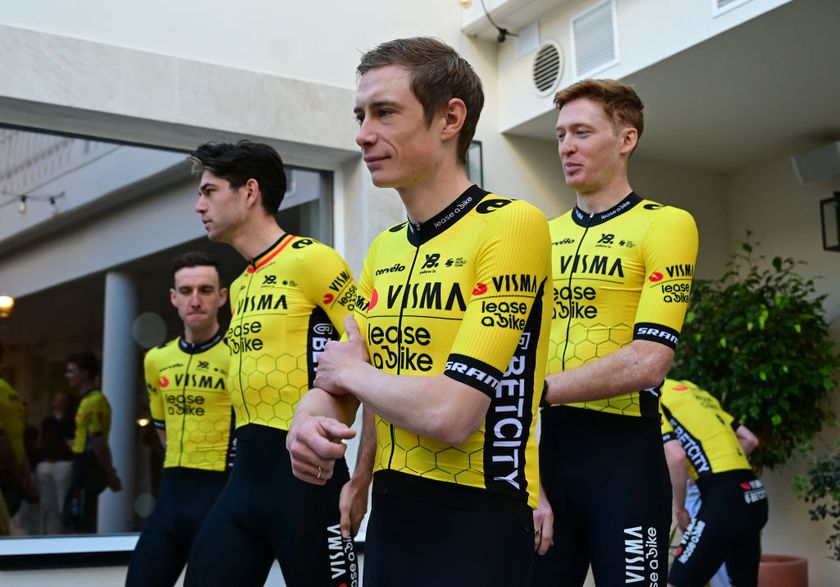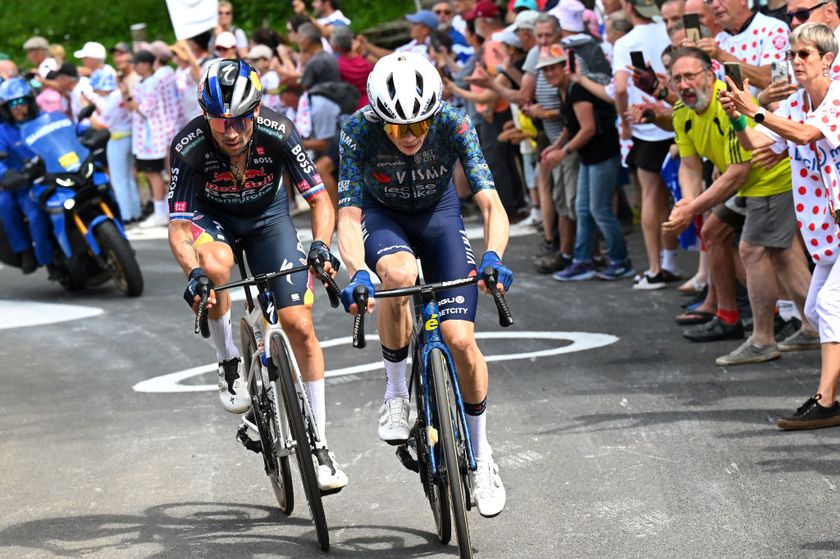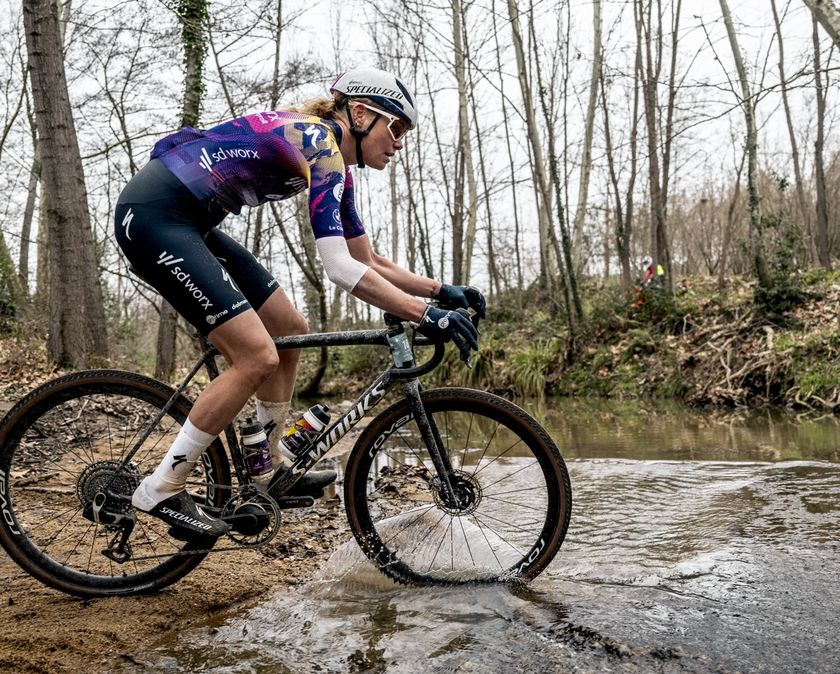Tinkoff team races its last at the Abu Dhabi Tour
'We could have gone on to achieve a lot more' says manager Stefano Feltrin





The Tinkoff Team raced its last race at the Abu Dhabi Tour on Sunday, bringing down the curtain on five years of sponsorship from the Russian online bank and 15 years of the team structure originally created by Bjarne Riis.
Erik Kolar contested the final sprint for the team finishing tenth behind Mark Cavendish on stage 4. Alberto Contador finished fifth overall despite a lack of form, perhaps stung by the criticism of team owner Oleg Tinkov in a final interview with Cyclingnews. The Spaniard limited his comments to the media, signing off with a brief 'happy holidays' after the finishing the stage. He remains officially under contract until December 31 and has opted to bite his tongue rather than respond to Tinkov.
The team rode in retro version of its cycling kit during the Abu Dhabi Tour and the riders and staff at the race posed for a final photograph before Sunday's final stage. Afterwards everyone shook hands and hugged as fans grabbed a team bidon as a souvenir.
Team manager Stefano Feltrin watched the race from the pits of the Yas Marina Formula 1 motor racing circuit. He has worked with team owner Oleg Tinkov for 14 years and tried to find a new title sponsor for the team when Tinkov decided to end his backing last winter. He failed to find a company or brand willing to spend €20 million to keep the team alive and so began to dismantle the team after the Tour de France. A team bus has been sold to the new Aqua Blue Sport Irish Professional Continental team, bikes and other equipment of value has been sold to the highest bidder.
"It's actually an emotional moment," Feltrin told Cyclingnews. "It's the end of a cycle in lots of ways, it's the end of the team. Peter (Sagan) will race in the Saitama criterium next week but the Abu Dhabi Tour is the final race for the Tinkoff team and so this is the end."
"It's an emotional moment but the sadness and disappointment is tempered by the satisfaction and pride of knowing that we achieved some great results out on the road as a team in the way we presented ourselves. I think we were innovative. Some people like what we did, others less so but I think the results are clear: we made an impact on the sport. I think we'll leave a good impression after everything is done and dusted and the team no longer exists."
The Tinkoff team won 34 races this season. Sagan won a second consecutive world title, the Tour of Flanders, the green points jersey at the Tour de France and a total of 13 victories. Alberto Contador crashed early and quit the Tour de France but returned to ride the Vuelta a Espana and finished fourth.
Get The Leadout Newsletter
The latest race content, interviews, features, reviews and expert buying guides, direct to your inbox!
"We won some big races but as the best chefs in the world say: you should always leave the table feeling a little hungry, so it makes you want to go back. That's how we feel. Our only regret is not having won the Tour de France," Feltrin said.
"Last year we tried to win the three Grand Tours consecutively. It didn't come off but if you don't try, you won't achieve much in life. This year we've finished second in the UCI WorldTour team ranking even though Alberto crashed and quit the Tour. Someone once told me that you either win or you learn a lesson. We've won a lot but we've also learnt a lot too. That's another reason why it's such a pity it's the end of the road for this team. We could have gone on to achieve a lot more."
Paying the price of constant uncertainty
While Oleg Tinkov often barked at the moon and made the headlines with his provocative statements, Feltrin has worked quietly behind the scenes running the team and trying to help modernise professional cycling. He searched hard for a new sponsor but ultimately failed to save the team.
The Swiss IAM Cycling team will also disappear this year. Bora-Hansgrohe will step up and the Bahrain-Merida team is under construction, but professional cycling will lose two major teams. Feltrin is convinced cycling's structure and business model is the major cause of the teams demise.
"It's been said many times in the past and more recently; unfortunately it's very true. Cycling is based on a business model that was shaped 15 years ago but it hasn't evolved correctly and now is unsustainable. We're paying the price now.
"One of the reasons why our team has folded is that the business model based almost exclusively on title sponsors makes it extremely difficult to survive. We've tried to change things in the last five years but I think its fair to say that the sport has taken several steps backwards. For example it's almost November and we don't know how the sport will be structured and which teams will take part in the WorldTour next season."
"The teams are trying to survive in constant uncertainty. That makes it very difficult to do any kind of even medium term planning. It's crazy because cycling works as a sport, people like cycling. But by drifting along like we have done, we've missed out on so many opportunities to grow and develop. For example in the last 20 years Formula 1 has innovated and evolved. At the same time cycling has drifted and regressed, with teams arguing with organisers and the governing body, and so the sponsors come and go so often. It's a real pity and I think really sad."

Stephen is one of the most experienced member of the Cyclingnews team, having reported on professional cycling since 1994. He has been Head of News at Cyclingnews since 2022, before which he held the position of European editor since 2012 and previously worked for Reuters, Shift Active Media, and CyclingWeekly, among other publications.
Most Popular







